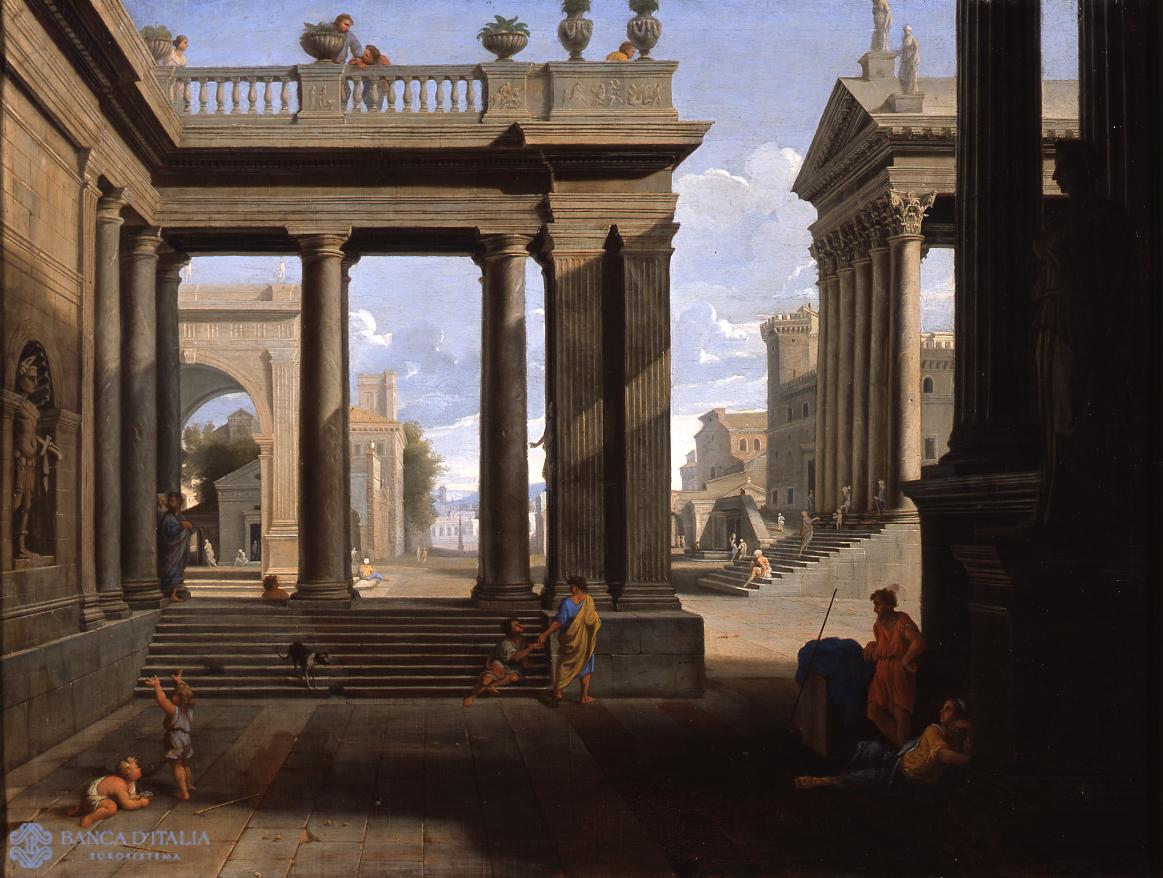The streets and squares of this imaginary city, with its marble pavements, are completely surrounded by majestic buildings: a portico with Tuscan colonnade at the centre of the composition, the entrance to a large temple on the right, a wide arch and various other constructions. In the shaded foreground, the scene is framed by two large columns and a statue of a robed woman on a tall pedestal.
The painting is a companion to the other veduta and contains all the elements characteristic of Lemaire’s cityscapes: the unbroken line of buildings stretching into the distance and the constant references to monuments that really existed in Rome, such as the unadorned façade of the church of Santa Maria in Aracoeli, visible on the right. Most of the human figures that Lemaire incorporates in his architectural pastiches are in static poses, inspired by ancient statues. One example is the standing figure emerging from the shade in the foreground. Leaning on a block of marble, his body at an angle, he recalls Praxiteles’ famous Leaning Satyr, of which numerous copies existed. The cultural references embodied in this figure and, in general, the classical dress in which all the figures are robed link Lemaire’s painting to the work of his contemporary, Poussin.
Jean Lemaire, Capriccio con prospettive architettoniche
Capriccio with Architectural Perspectives
17th century AD
Painting
Landscape

Artist
Date
1630s
Material and technique
Oil on canvas
Measurements
74 x 98 cm
Compiler
Alessandro Zuccari
